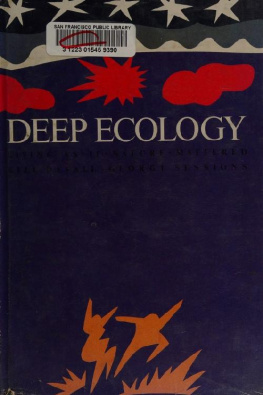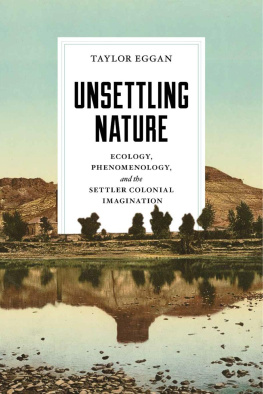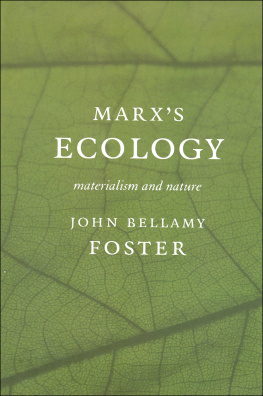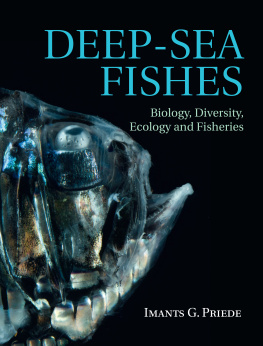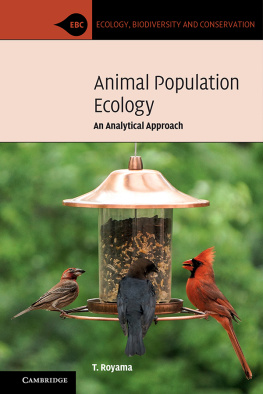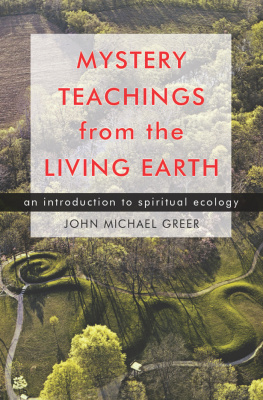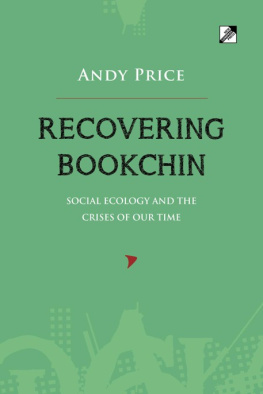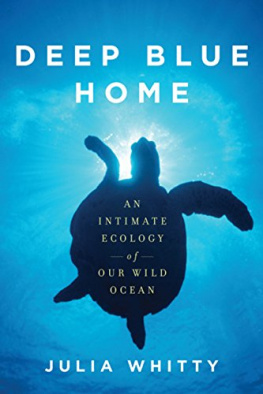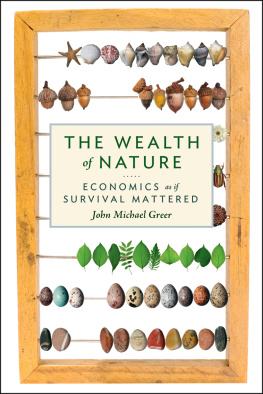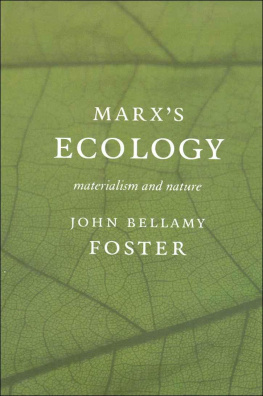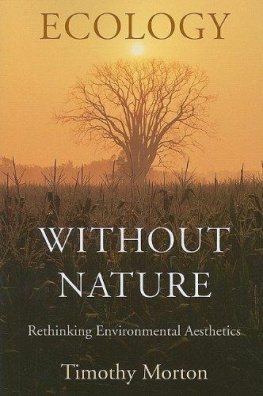Bill Devall - Deep Ecology: Living as if Nature Mattered
Here you can read online Bill Devall - Deep Ecology: Living as if Nature Mattered full text of the book (entire story) in english for free. Download pdf and epub, get meaning, cover and reviews about this ebook. year: 1985, publisher: Gibbs Smith, genre: Religion. Description of the work, (preface) as well as reviews are available. Best literature library LitArk.com created for fans of good reading and offers a wide selection of genres:
Romance novel
Science fiction
Adventure
Detective
Science
History
Home and family
Prose
Art
Politics
Computer
Non-fiction
Religion
Business
Children
Humor
Choose a favorite category and find really read worthwhile books. Enjoy immersion in the world of imagination, feel the emotions of the characters or learn something new for yourself, make an fascinating discovery.
- Book:Deep Ecology: Living as if Nature Mattered
- Author:
- Publisher:Gibbs Smith
- Genre:
- Year:1985
- Rating:5 / 5
- Favourites:Add to favourites
- Your mark:
- 100
- 1
- 2
- 3
- 4
- 5
Deep Ecology: Living as if Nature Mattered: summary, description and annotation
We offer to read an annotation, description, summary or preface (depends on what the author of the book "Deep Ecology: Living as if Nature Mattered" wrote himself). If you haven't found the necessary information about the book — write in the comments, we will try to find it.
Deep Ecology: Living as if Nature Mattered — read online for free the complete book (whole text) full work
Below is the text of the book, divided by pages. System saving the place of the last page read, allows you to conveniently read the book "Deep Ecology: Living as if Nature Mattered" online for free, without having to search again every time where you left off. Put a bookmark, and you can go to the page where you finished reading at any time.
Font size:
Interval:
Bookmark:
Copyright 1985 by Gibbs M. Smith, Inc.
This is a Peregrine Smith Book
Published by Gibbs M. Smith, Inc.
P.O. Box 667
Layton, UT 84041
All rights reserved for all countries, including the right of translation. No part of this book may be used or reproduced in any manner whatsoever without written permission from the publisher.
Book design by M. Clane Graves
Manufactured in the United States of America
Library of Congress Cataloging in Publication Data
Devall, Bill, 1938
Deep ecology.
Bibliography: p.259
1. Man Influence on nature. 2. Environmental protection. 3. Conservation of natural resources. 4. Human ecology. 5. Environmental policy.
I. Sessions, George,1938- .
II. Title.
GV75.D49 1985 333.716 84-14044
ISBN 0-87905-158-2
333.7,D49d Devall, Bill.
mountaineer, deep ecologist,
mentor, activist, philosopher
Gary Snyder
teacher, reinhabitant of the western slope, Sierra Nevada
The environmental problems of technocratic-industrial societies are beginning to be seen as manifestations of what some individuals are calling the continuing environmental crisis. This is coming to be understood as a crisis of character and of culture.
The environmental/ecology social movements of the twentieth century have been one response to the continuing crisis. These movements have addressed some of the problems and have tried to reform some of the laws and agencies which manage the land and to change some of the attitudes of people in these societies. But more than just reform is needed. Many philosophers and theologians are calling for a new ecological philosophy for our time.
We believe, however, that we may not need something new, but need to reawaken something very old, to reawaken our understanding of Earth wisdom. In the broadest sense, we need to accept the invitation to the dancethe dance of unity of humans, plants, animals, the Earth. We need to cultivate an ecological consciousness. And we believe that a way out of our present predicament may be simpler than many people realize.
Responding to the environmental crisis, the themes in Deep Ecology alternate between personal, individual options and public policy and collective options. On the personal level, we encourage introspection, purification and harmony, and a dancing celebration or affirmation of all being. On the level of intellectual, historical analysis, the book offers an examination of the dominant worldview in our society, which has led directly to the continuing crisis of culture. We then present an ecological, philosophical, spiritual approach for dealing with the crisis.
On the level of public or community policies, we examine various conventional approaches to natural resource management, criticize these approaches and present realistic alternatives. A major thrust of the book is an intellectual examination of the predicament and an attempt to clarify our vital needs as humans.
To readers who feel we live in the best of all possible worlds, with a high standard of living, the book suggests an alternative perspective to consider. To professional philosophers, resource managers and politicians who deal with ideas, abstractions, ethical theory, economics and politics, the book suggests some of the limitations, in our view, of the dominant approach to public policy. To the reader seeking a more authentic existence and integrity of character, the book offers a theory of direct action which can help develop maturity.
In structure, the book begins with a chapter on possible scenarios for the environmental/ecology movement during the next several decades. We suggest an approach based on asking deeper questions and on cultivating ecological consciousness. In chapter two we discuss the minority tradition of culture and community and specific types of direct action which individuals can take to further serve their own vital needs while serving the needs of the larger community of other humans, plants, animals, and the Earth. Chapter three summarizes the dominant worldview and its critics. In chapter four we discuss the reformist response to the dominant worldview, in both philosophy and reform politics.
Chapter five presents the basic intuitions, ultimate norms, and principles of deep ecology. In chapter six, various sources of deep ecological insights and philosophical principles are introduced. Chapter seven discusses the vital need humans have for wilderness and the public policy decisions now affecting the remaining wild places of the Earth.
In chapter eight we confront the real problems of managing natural resources in technocratic-industrial societies and suggest some proposals for management from a deep ecology perspective. The importance of ecotopian visions is presented in chapter nine along with a review of several ecotopian statements by prominent writers.
Chapter ten presents a theory of taking direct action to further the development of maturity based on theories of psycho-social development. The final chapter returns to the theme of direct action, and discusses ecological resistingthe affirmation of life based on deep ecological insights and principles.
Deep Ecology is an invitation to thinking, and presents challenging questions and dilemmas. To help in developing personal insights into deep ecology, brief writings from many authors have been included. These stimulating insights, perceptions, and debates can be read independent of the text. We encourage the reader to read the book creatively by bridging the ideas in the boxed writings and the text.
Taken in its entirety, the increase in mankinds strength has brought about a decisive, many-sided shift in the balance of strength between man and the earth. Nature, once a harsh and feared master, now lies in subjection, and needs protection against mans powers. Yet because man, no matter what intellectual and technical heights he may scale, remains embedded in nature, the balance has shifted against him, too, and the threat that he poses to the earth is a threat to him as well.
Jonathan Schell, The Fate of the Earth (1982)
CANDLES IN BABYLON
hoping
the rhymes promise was true,
that we may return
from this place of terror
home to a calm dawn and
the work we had just begun.
Denise Levertov, Candles in Babylon


We need nature to be fully alive: air, food, warmth, spiritual We live as if nature is only needed to provide extras: paper, recreation, specialty foods, a job to provide money.
Susan Griffin, Women and Nature, 1978
The major problems in the world are the result of the difference between the way nature works and the way man thinks.
Gregory Bateson, Lindisfarn, Long Island, 1976
In this first chapter we assume that the environmental/ecology movement has been a response to the awareness by many people that something is drastically wrong, out of balance in our contemporary culture. In the first section, we present several alternative scenarios for the movement. These scenarios will provide a context in which to understand deep ecology. Some of the major themes of deep ecology and of cultivating ecological consciousness are discussed in the second section of the chapter.
Font size:
Interval:
Bookmark:
Similar books «Deep Ecology: Living as if Nature Mattered»
Look at similar books to Deep Ecology: Living as if Nature Mattered. We have selected literature similar in name and meaning in the hope of providing readers with more options to find new, interesting, not yet read works.
Discussion, reviews of the book Deep Ecology: Living as if Nature Mattered and just readers' own opinions. Leave your comments, write what you think about the work, its meaning or the main characters. Specify what exactly you liked and what you didn't like, and why you think so.

